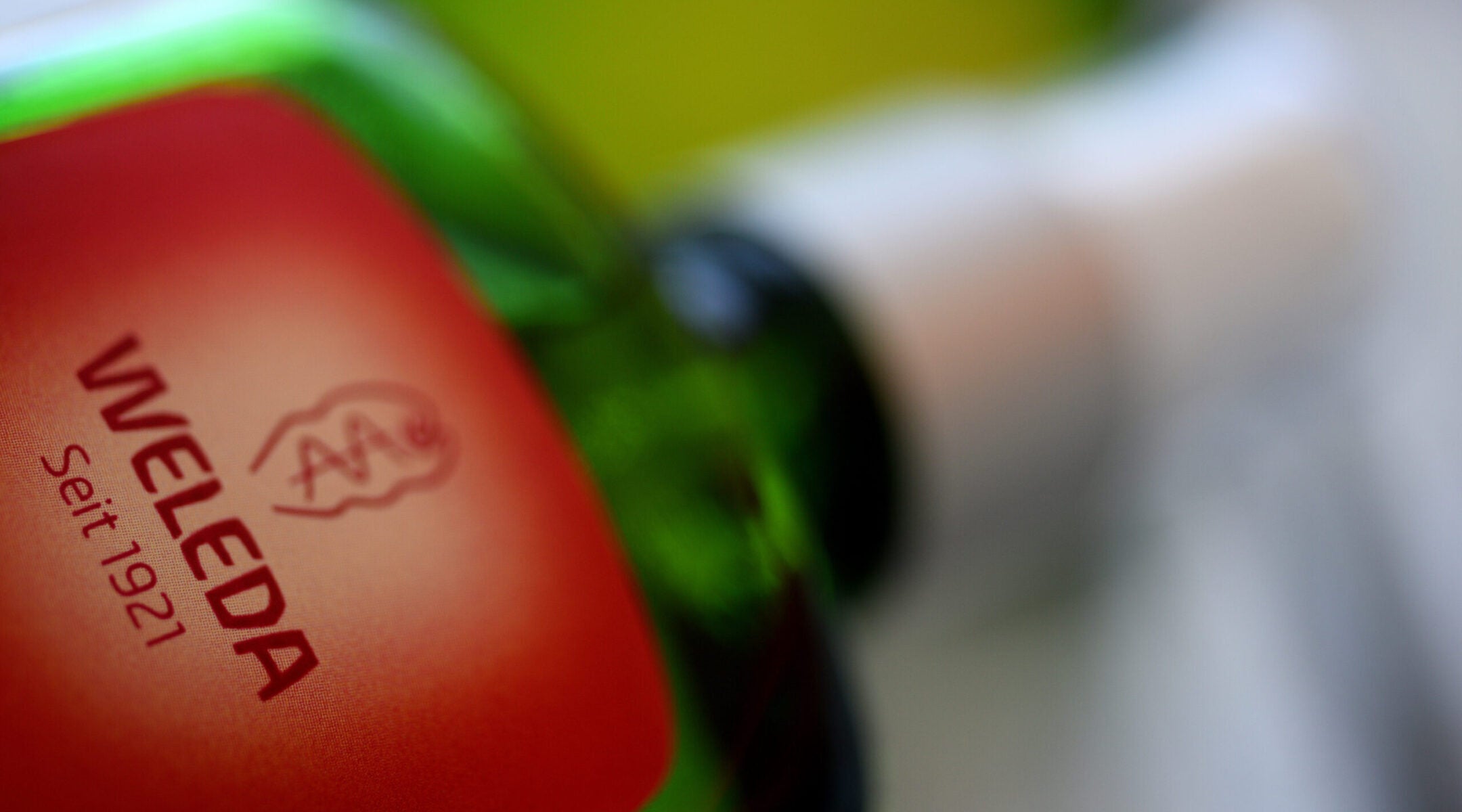A major European cosmetics firm has vowed to reexamine its Nazi-era history amid revelations that it benefited from gruesome human experiments in a Nazi concentration camp during the Holocaust.
Weleda, founded in 1921 in Germany by a Swiss parent company, claimed that its skin cream could protect German soldiers from frostbite. To prove the claim, Nazi doctors and their assistants — some of them with connections to Weleda — used the cream in brutal experiments on some 300 prisoners at the Dachau concentration camp, in which they were submerged in water with ice blocks for hours on end.
About 80 to 90 prisoners died as a result, in one of countless examples of inhumane medical experimentation to which the Nazis subjected their victims.
The German historian Anne Sudrow exposed the Weleda experiments in a new book published Monday under the auspices of the Dachau memorial. They were first reported publicly in Der Spiegel magazine last week.
In response to the revelations, the company, now headquartered in Arlesheim, Switzerland, said it will reexamine its Nazi-era history. An in-house study, published last year, failed to uncover Weleda’s role in human experiments.
“All of this new research gives us reason to revisit our history in depth with a large, independent study,” Weleda CEO Tina Müller said in a statement. The new study is expected to take two years to complete.
Sudrow found that the company had close ties to the SS and benefited from Dachau’s slave labor, obtaining medicinal herbs grown by prisoners there at a reduced cost. The company supplied the camp with a cream that was supposed to have an antifreeze effect. SS doctor Sigmund Rascher conducted human experiments to test the hypothesis — reportedly promoted by Weleda — that the product could protect soldiers from frostbite and make amputations unnecessary. Two former Weleda employees directed the experiments and reported back to company management, Sudrow reported.
As reports of the revelations emerged, the company denounced Nazism in a corporate statement. “At Weleda, we condemn the atrocities of National Socialism in the strongest possible terms,” it said. “Fascism, anti-Semitism, racism, or right-wing extremist ideology have no place in our company. Weleda is a place of humanity. ‘Never again’ expresses our stance.”
Weleda is a natural cosmetics company that was inspired by Rudolf Steiner’s anthroposophical movement, a quasi-religious movement officially banned by the Nazis that promoted some overlapping ideas. It was founded in 1921 in Schwäbisch Gmünd, in the German state of Baden-Württemberg, where it produced homeopathic medicines, dietary supplements and skin care products.
Today, it is an increasingly profitable cosmetics company that operates in 50 countries and cleared more than 450 million euros of business last year. While it is most popular in Europe, its diaper cream in particular has cult status in the United States.
A page on its website chronicling the company’s activities from 1933 to 1945, when the Nazi regime ruled Germany, had been removed this week. But according to a version of the page from August, available through the Internet Archive, the page said Weleda had faced persecution by the Nazis and that, while former Weleda employees had been Nazis, the company was not involved in any Nazi uses of its products. According to a historian who had researched the company, the page said, “Weleda did not participate in the inhumane policies of the Nazi dictatorship.”
The page also said Weleda contributed to the EVZ Foundation, a fund to support ongoing education and remembrance initiatives related to Germany’s Nazi past, when the government launched it in 2000. The company’s management said at the time, according to the page, “Weleda AG has never employed forced labourers in its history. However, it acknowledges the Germans’ shared responsibility for the injustice suffered by forced labourers under Nazi rule in World War II.”
Several major German companies, from banks to auto manufacturers, have commissioned studies of their wartime operations, publishing the results and contributing to funds that support former slave laborers and educational projects. In 2019, for example, the Reimann family, heirs of a German firm that had profited from Nazi-era slave labor, established the Alfred Landecker Foundation to fight antisemitism, support Holocaust studies and uphold democratic values.
Keep Jewish Stories in Focus.
JR has documented Jewish history in real-time for over a century. Keep our journalism strong by joining us in supporting independent, award-winning reporting.




